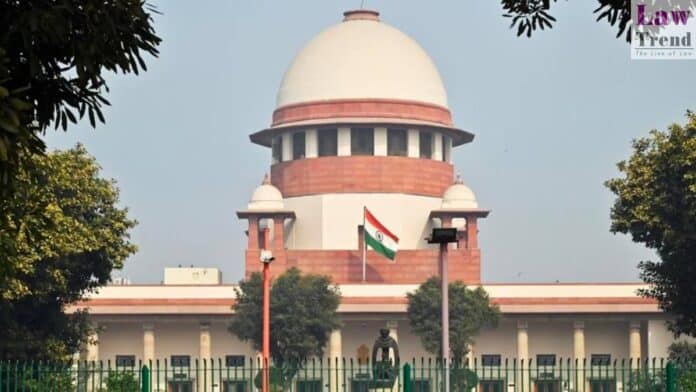The Delhi government on Friday moved the Supreme Court challenging the constitutionality of the ordinance on control of services, saying it is an “unconstitutional exercise of executive fiat” that attempts to “override” the top court and the basic structure of the Constitution.
Besides quashing of the ordinance, the Delhi government has also sought an interim stay on it.
The Centre had on May 19 promulgated the Government of National Capital Territory of Delhi (Amendment) Ordinance, 2023, to create an authority for transfer and posting of Group-A officers in Delhi. The Aam Aadmi Party (AAP) government has been calling it a deception with the Supreme Court verdict on control of services.
The ordinance, which came a week after the Supreme Court handed over the control of services in Delhi excluding police, public order and land to the elected government, seeks to set up a National Capital Civil Service Authority for transfer of and disciplinary proceedings against Group-A officers from the DANICS cadre.
Transfer and postings of all officers of the Delhi government were under the executive control of the LG before the May 11 top court verdict.
In its plea filed through advocate Shadan Farasat, the Delhi government has said that the ordinance, which came days after the apex court verdict, is a plain attempt to “override” the top court and the basic structure of the Constitution itself vide executive fiat.
Seeking quashing of the ordinance, the plea alleged that it is an “unconstitutional exercise of executive fiat” that violates the scheme of federal, democratic governance entrenched for the NCTD in Article 239AA and is manifestly arbitrary.
“Article 239AA of the Constitution is a sui generis provision in that it constitutionally entrenches for NCTD a Westminster-style democracy, to fulfill the popular, regional, and democratic aspirations of the people of Delhi. The impugned ordinance directly violates this scheme of federal, democratic governance incorporated in Article 239AA and, specifically, the principle of ‘collective responsibility’ incorporated in Article 239AA(6),” it said.
The plea said the ordinance “completely sidelines” the elected government, that is, the GNCTD, from control over its civil service.
“The Impugned ordinance wrests control over civil servants serving in the Government of NCT of Delhi (GNCTD), from the GNCTD to the unelected Lieutenant Governor (LG). It does so without seeking to amend the Constitution of India, in particular Article 239AA of the Constitution, from which flows the substantive requirement that power and control in respect of Services be vested in the elected government,” it said.
The plea said the ordinance, by seizing control over civil servants posted in the GNCTD and vesting it in the hands of the Union’s nominee, in effect attempts to hand over the administration of the GNCTD to the Union of India.
“In doing so, the impugned ordinance erodes not only the premise of democratic governance but also the regional will of Delhi’s electorate. The impugned ordinance violates Article 239AA on both counts,” it said.
The plea said a democratic and federal form of government, so also the non-retrogression of such forms, are basic features of our Constitution.
“This attempt to withdraw and erode the democratic, federal voice guaranteed to the people of Delhi after over 30 years of its recognition, could not have been done via constitutional amendment, let alone through the impugned ordinance,” it said.
It said under the scheme of Article 239AA, the LG enjoys discretion only in matters falling outside the GNCTD’s legislative and executive domain, and in all other matters (including ‘Services’) is bound by the aid and advice of the Council of Ministers.
The ordinance stated that “there shall be an authority to be known as the National Capital Civil Service Authority to exercise the powers conferred on, and discharge the functions assigned to it”.
The authority will comprise the chief minister of the government of the National Capital Territory of Delhi as its chairperson, along with the chief secretary and the principal home secretary, who will be the member secretary to the authority, it said.
“All matters required to be decided by the authority shall be decided by majority of votes of the members present and voting. All recommendations of the authority shall be authenticated by the member secretary,” the ordinance said.
“The central government, in consultation with the authority, shall determine the nature and the categories of officers and other employees required to assist the authority in the discharge of its functions and provide the authority with such officers and employees, as it may deem fit…
“Notwithstanding anything contained in any law for the time being in force, the National Capital Civil Service Authority shall have the responsibility to recommend the transfers and postings of all the Group ‘A’ officers and officers of DANICS serving in the affairs of the government of the National Capital Territory of Delhi but not officers serving in connection with any subject matter,” it read.
The National Capital Civil Service Authority will meet at a time and place as the member secretary decides with the approval of the chairperson of the authority, as and when required, the ordinance adde
The Delhi government has legislative and executive powers over administration of services except for public order, police and land, the Supreme Court had ruled on May 11.
A five-judge Constitution bench headed by Chief Justice D Y Chandrachud, in a unanimous verdict, had put an end to the eight-year-old dispute between the Centre and the Delhi government triggered by a 2015 home ministry notification asserting its control over services, holding the National Capital Territory administration is unlike other Union territories and has been “accorded a ‘sui generis’ (unique) status by the Constitution.
Against the backdrop of frequent run-ins between the AAP government and the Centre’s point man, the lieutenant governor, the apex court asserted an elected government needs to have control over bureaucrats, failing which the principle of collective responsibility will be adversely affected.




